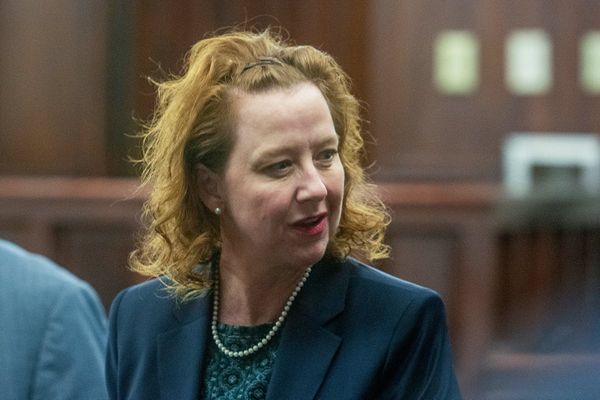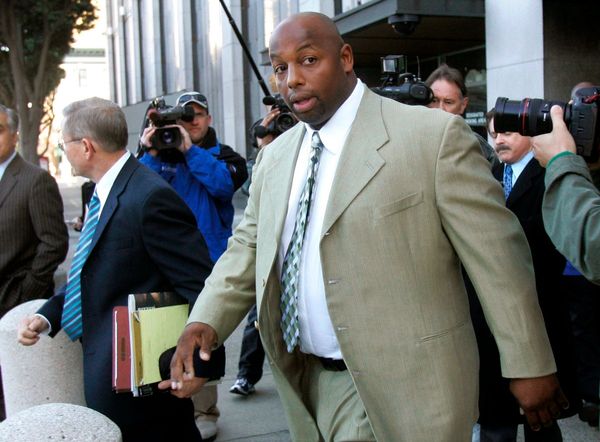
It’s been eight months since the Senate inquiry into media diversity, chaired by Greens Senator Sarah Hanson-Young, handed down its report calling for a judicial inquiry into media diversity, ownership and regulation. Neither the previous Coalition government nor the current Labor one has formally responded to its findings, and Hanson-Young is demanding action.
“The [inquiry] was extensive, thorough and made important recommendations that should not be ignored. The evidence showed Australia’s current media laws are not fit for purpose and need urgent reform,” she told Crikey.
“I urge [Communications] Minister [Michelle] Rowland to provide a comprehensive response. It is clear we need media reform. Why is the government so scared of a royal commission into Australia’s media? Is it that they are worried about what the Murdoch press will say, and what the retribution will be? If so, this is exactly why we need one.”
Australia has one of the highest media concentrations in the world and has slipped to number 39 on the World Press Freedom Index. The year-long Senate committee inquiry was prompted by former prime minister Kevin Rudd’s petition for a royal commission into the Murdoch media, which attracted half a million signatures.
The inquiry found News Corp was the “clearest example of a troubling media monopoly in Australia” which had a corrosive effect on democracy. It also found media regulator the Australian Communications and Media Authority (ACMA) lacked powers, the Press Council was inefficient at dealing with complaints, and there was an absence of regulation for online publishers and tech giants.
The report made just two recommendations. The first was to initiate a judicial inquiry with the powers of a royal commission into media concentration and to test whether media regulation is fit-for-purpose — with a focus on a single, independent media regulator to harmonise media standards and oversee an effective complaints process.
The second centred around supporting diverse media by fully funding public broadcasters and the Australian Associated Press and emerging ventures, especially in regional areas, with tax reform to support this; taking action on a media reform green paper; keeping the national broadband network public; and allowing public interest journalism to receive deductible gift recipient charity status.
“Through News Corp, the Murdoch empire wields enormous power and political influence, largely unchecked and unchallenged. The impact on democracy is corrosive and has eroded trust in journalism and public institutions,” Hanson-Young said.
Yesterday independent MP Zoe Daniel said she would bring a motion for a judicial inquiry to Parliament in the coming weeks. Fellow independents Kate Chaney and Kylea Tink said they’d support it.
A spokeswoman for Rowland said the government would respond to the report’s recommendations “in due course”.
“The government has affirmed its clear and consistent position that a royal commission or judicial inquiry into media diversity isn’t the way forward for media policy,” she said. “We need to be outcomes-focused in implementing the backlog of recommendations that already exist, including from multiple reviews and inquiries into the media and public interest journalism over the past decade.”
Deputy chair of the Senate committee Liberal Senator Andrew Bragg has been critical of the inquiry since it handed down its report, and doesn’t support a judicial inquiry. He told Crikey he supported Labor’s response to reject a judicial inquiry at the time, saying there wasn’t enough evidence for one.
“The inquiry recommended one inquiry focused on one organisation, which I just think is crazy,” he said. The inquiry would examine media regulation and ownership across the country.
He does support several points in the recommendations, including reforming the media complaints and regulatory bodies and examining merging ACMA and the Press Council.
“If this is about complaints handling, then people should be prepared to have a hard conversation about the Press Council,” he said. “If media outlets are serious about improving themselves, they should do as the ABC has just done and set up an ombudsman.”
He added that he looked forward to ensuring the ombudsman achieved what it was established to do.
This article has been updated to reflect that the judicial inquiry would be a single inquiry.







